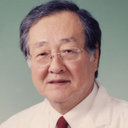Effects of genetically engineered stem cells expressing cytosine deaminase and interferon-beta or carboxyl esterase on the growth of LNCaP rrostate cancer cells.
Ključne riječi
Sažetak
The risk of prostate cancer has been increasing in men by degrees. To develop a new prostate cancer therapy, we used a stem cell-derived gene directed prodrug enzyme system using human neural stem cells (hNSCs) that have a tumor-tropic effect. These hNSCs were transduced with the therapeutic genes for bacterial cytosine deaminase (CD), alone or in combination with the one encoding human interferon-beta (IFN-β) or rabbit carboxyl esterase (CE) to generate HB1.F3.CD, HB1.F3.CD.IFN-β, and HB1.F3.CE cells, respectively. CD enzyme can convert the prodrug 5-fluorocytosine (5-FC) into the activated form 5-fluorouracil (5-FU). In addition, CE enzyme can convert the prodrug CPT-11 into a toxic agent, SN-38. In our study, the human stem cells were found to migrate toward LNCaP human prostate cancer cells rather than primary cells. This phenomenon may be due to interactions between chemoattractant ligands and receptors, such as VEGF/VEGFR2 and SCF/c-Kit, expressed as cancer and stem cells, respectively. The HB1.F3.CE, HB.F3.CD, or HB1.F3.CD.IFN-β cells significantly reduced the LNCaP cell viability in the presence of the prodrugs 5-FC or CPT-11. These results indicate that stem cells expressing therapeutic genes can be used to develop a new strategy for selectively treating human prostate cancer.


